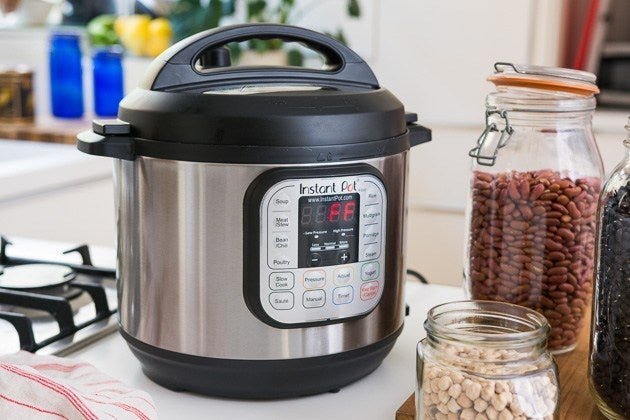When it comes to modern kitchen convenience, few appliances have made as much of an impact as the Instant Pot and the traditional rice cooker. These two kitchen staples have revolutionized the way we prepare our meals, simplifying the cooking process and saving precious time. At TheKitchenApplianceDad.com, we’re here to delve into the capabilities, benefits, and drawbacks of each appliance to help you decide which one is the best fit for your home kitchen.
What is an Instant Pot?
The Instant Pot is a multifunctional electric pressure cooker that has gained a massive following for its versatility and ease of use. It’s a single appliance that can take on the roles of a pressure cooker, slow cooker, rice cooker, steamer, sauté pan, and even a yogurt maker. The Instant Pot comes in various models and sizes, with the most common sizes being 3-quart, 6-quart, and 8-quart.
Features of the Instant Pot:
Pros of the Instant Pot:
Cons of the Instant Pot:

What is a Rice Cooker?
A rice cooker is a dedicated kitchen appliance designed to cook rice to perfection every time. It works by bringing the water to a boil, which is then absorbed by the rice until it reaches the ideal temperature, at which point the device switches to ‘keep warm’ mode. Rice cookers can vary from simple, one-button models to more advanced versions with settings for different rice types and additional features like steaming.
Features of the Rice Cooker:
Pros of the Rice Cooker:
Cons of the Rice Cooker:
When it comes to cooking rice, both the Instant Pot and rice cooker excel, but they do have their differences. Traditional rice cookers are designed specifically for this task, often yielding a slightly better texture, especially for rice aficionados. The Instant Pot, while highly efficient, may require a bit of trial and error to get the rice just right, as pressure cooking is a different method than the passive steaming of a rice cooker.
Beyond rice, the Instant Pot truly shines. It can handle a wide range of grains like quinoa, farro, and barley with ease. Additionally, its capacity to sauté, steam, and slow cook allows for an extensive variety of meals, from stews and soups to cakes and hard-boiled eggs. A conventional rice cooker is much more limited, though some models do offer the ability to steam vegetables or cook porridge.
Instant Pot:
Given its larger size and multifunctionality, the Instant Pot demands more kitchen real estate. If you’re tight on space or prefer a minimalist kitchen, the Instant Pot’s size might be a downside. However, it can replace several other appliances, which might free up space in the long run.
Rice Cooker:
A rice cooker’s smaller footprint makes it a better option for those with limited counter space or smaller households. It’s easier to store in a cabinet and pull out only when needed.
Instant Pot:
Expect to invest more upfront for an Instant Pot. The price varies depending on the model and size but generally ranges from about $60 to $150. Considering its multifunctionality, the cost can be justified if it replaces other appliances and if you’ll use its various functions frequently.
Rice Cooker:
A basic rice cooker can cost as little as $20, with high-end models reaching upwards of $100, particularly for those with induction heating or pressure cooking capabilities. For most users, a standard rice cooker will be sufficient for their rice-cooking needs and more cost-effective.
Modern kitchen appliances have come a long way in terms of safety. The Instant Pot boasts a range of safety features such as overheat protection, safety lock lids, and pressure release valves. While rice cookers are generally safe, they lack the sophisticated safety mechanisms inherent in pressure cookers. This isn’t usually a concern, given the simpler operation of rice cookers, but it’s worth noting for those who prioritize safety features.
When making your decision, consider the reputation of the brand and the warranty offered. Both Instant Pot and reputable rice cooker brands typically offer a one-year limited warranty. It’s wise to read reviews and check for post-purchase support options.
Choosing between an Instant Pot and a rice cooker boils down to your cooking habits, space, budget, and the variety of dishes you prepare. If you’re someone who loves experimenting with different recipes and could benefit from an all-in-one appliance, the Instant Pot may be the perfect kitchen companion. On the other hand, if you primarily cook rice and prefer a simpler, dedicated appliance, a rice cooker could be the better choice.
Whether you’re an avid rice eater or a home chef looking for versatility, TheKitchenApplianceDad.com hopes this comparison has been helpful in guiding you to the perfect addition to your kitchen. Happy cooking!

